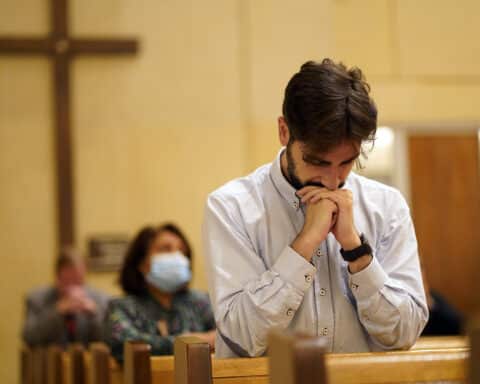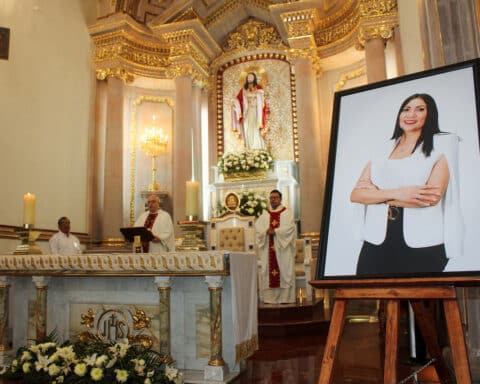
While Wear is not Catholic, his lessons are valuable for all who care about the common good, making it important reading for Catholics interested in public life. Three lessons stand out:
Hopelessness causes us to withdraw from institutions
Americans increasingly feel alienated and isolated from institutions, and they are withdrawing from them. This is producing a calamitous breakdown in community and an epidemic of social isolation and loneliness.
The opioid crisis is likely one product of this changing social landscape. Another product is that rates of divorce and out-of-wedlock childbirths have soared among working-class Americans.
The withdrawal is affecting religion, as millions of millennials walk away from organized religion. It also reinforces the disastrous polarization and partisanship in American politics by handing the parties over to the most doctrinaire ideologues, as those who feel alienated from both parties choose to remain on the sidelines as political independents and are relegated to deciding between the lesser of two evils in the final stage of the electoral process.
Millions of Americans feel as though formal institutions have let them down — from the Church’s sexual abuse scandal; to the use of ugly culture war tactics; to Wall Street’s recklessness, immoral behavior prior to the Great Recession; to President George W. Bush’s rush to war in Iraq and the subsequent botching of the occupation and withdrawal.
But strong institutions are necessary for promoting human flourishing and establishing the common good. For Catholics, salvation is communal; we seek communion with God and one another.
The Church exists for the sake of this communion. It cannot be replaced by an extreme individualism that aims at individual salvation in splendid isolation.
Strong families are needed to provide the love, structure and support people need to flourish and reach their potential. Dependable friendships are needed for similar reasons. And government is essential for guaranteeing human rights and promoting social justice. Catholic social teaching has explicitly rejected not just extreme individualism but the libertarian obsession with minimizing government and maximizing autonomy that often accompanies it.
Political behavior shapes outsider perspectives
Wear notes that the way Christians operate in the public sphere affects the nature and appeal of Christian witness. As he was becoming a Christian, many other millennials were turning away from faith. The culture war approach of the Christian right, at a time when its power and influence had reached new heights, led many to conclude that Christians were judgmental and hypocritical.
The strong mixing of religion and politics made it appear to many that one could not be Christian without being a conservative — a problematic issue for many in one of the most progressive generations in American history.
How serious is a religion if it is aligned with a party that’s central goal is delivering tax cuts to the wealthy? How can people profess to be followers of Jesus Christ when they favor stripping away assistance from the poor and vulnerable? How sincere is their faith when they oppose measures to protect God’s creation for future generations?
As the Christian right rose, the Christian left seemed to be recede from the public sphere, with many of its prominent proponents increasingly embracing the social libertarianism of secular liberals.
From the abolitionists to the Progressive Era to the Civil Rights movement, there is a long, rich tradition of religious political reformers who pushed back against an unjust status quo and achieved extraordinary contributions to the common good. But that radicalism, vitality and courage has been in short supply during this Second Gilded Age.
Withdrawal from public life is not prophetic
Despite the election of a president whose interest in religion is nearly nonexistent and the inspirational leadership of Pope Francis, the draw toward political apathy for Christians has not disappeared. Faith too often is politicized or distorted to fit partisan agendas, and neither party is particularly welcoming toward Christians who reject both social and economic libertarianism.
It will take a political realignment or structural political reform for this to change, given the current power of special interest groups. And this requires far greater unity, orthodoxy and vitality from American Christians.
In the face of these difficulties, how should Christians respond? For a select group of culture warriors who fear American society is increasingly hostile to their values, the answer is withdrawal.
But this is no real option for Catholics. Christians have a right and a responsibility to participate politically and to defend human dignity, the common good and the poor and vulnerable. Pope Francis has told us that “a good Catholic meddles in politics.” This responsibility does not depend upon the end results of our actions.
As Michael Wear reminds us, as Christians, our primary goal is not victory or success, but faithfulness.





